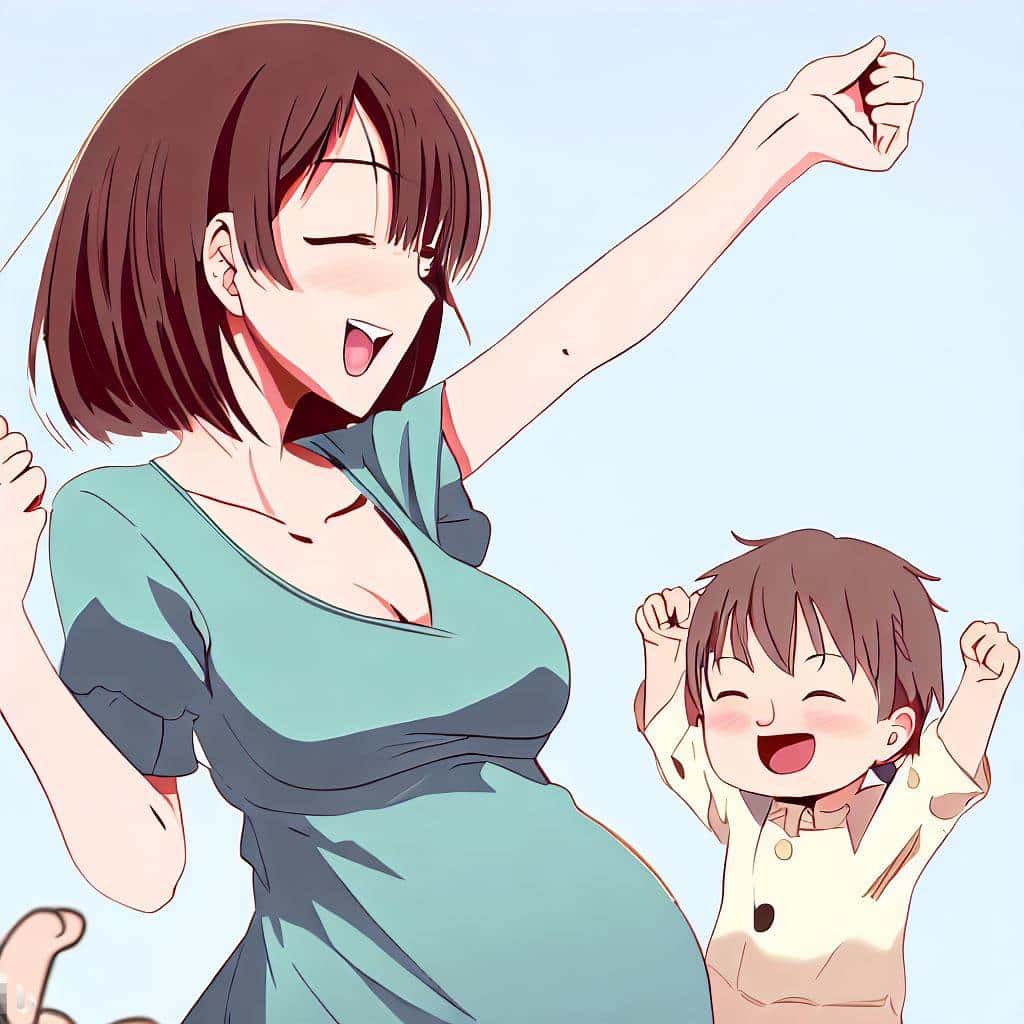I. Introduction
Hayden Panettiere on Postpartum Depression.
The glittering façade: A glimpse into Hayden Panettiere’s life
- Hayden Panettiere is an American actress who made her name as a child actress and then was a well-known name due to her appearances on famous TV shows such as Heroes as well as Nashville. She has also been in numerous films including Scream 4, I Love You, Beth Cooper, and Remember the Titans.
- She is the mother of her daughter named Kaya which she gave birth to in the year 2014 along with her ex-fiancee, Ukrainian boxer Wladimir Klitschko.
- She is currently in a relationship with Brian Hickerson, an aspiring actor and real estate agent.
- She has an estimated net worth of $15 million. She resides in Los Angeles, California.
Shedding light on Hayden Panettiere on postpartum depression: Understanding the condition
- The postpartum depression (PPD) is an illness of the mood which affects some women following having given birth. It can trigger feelings of anxiety, sadness and guilt. It can also cause hopelessness, despair, and separation from the baby.
- PPD may also hinder the daily routine, including taking care of oneself as well as the baby and eating, sleeping and even working.
- PPD is a problem that affects one in eight females across the United States, according to the Center for Disease Control and Prevention (CDC).
- PPD can happen at any time during the first year following delivery however, it usually begins in the first three weeks after the birth.
- PPD is treatable by utilizing psychotherapy, medication or both. But the majority of women do not get the proper help because of fear of stigma, ignorance or other barriers to seeking help.
- PPD can cause serious issues for mother’s health and well-being, and the development of the child and bonding.
II. Hayden Panettiere’s early life and successful career

A rising star: Hayden Panettiere’s breakthrough in Hollywood
- Hayden Panettiere was born on August 21, 1989 at Palisades, New York. The actress is daughter to Lesley Vogel, a former soap-opera actress, and Alan Lee “Skip” Panettiere who is a fire captain.
- She began acting at 11 months old acting in commercials featuring brands like McDonald’s, Playskool, and Nix Lice Shampoo.
- The actress made her TV debut when she was 4, as Sarah Roberts on the soap drama One Life to Live. She later played Lizzie Spaulding on Guiding Light from 1996 until 2000.
- She made her debut in film at the age of 10 as Sheryl Yoast in Remember the Titans. She would later appear in numerous other films like Joe Somebody, Raising Helen, Racing Stripes, Ice Princess, Bring It On: All or Nothing, I Love You Beth Cooper, Scream 4 and Custody.
- International recognition was earned for her character Claire Bennet, a cheerleader who has regenerative capabilities on the NBC science-fiction drama Heroes from 2006 until the year 2010. She was nominated for numerous awards and nominations for her performance and performance, including the Golden Globe nomination for Best Supporting Actress in a Show, Miniseries or Television Film in 2009.
- She also appeared as Juliette Barnes, a country performer with confusing disorder as well as addiction issues on the musical drama ABC/CMT Nashville from 2012 until the year 2018. She received two Golden Globe nominations for Best Actress in the field of Television Series Musical or Comedy in 2013 and 2014 for her performance in this role.
- She also has delved in the field of voice-over acting giving the character’s voice such as Kairi on her Kingdom Hearts video game series, Dot in A Bug’s Life 2: The Revenge of the Grasshoppers (2020) as well as Kate from Alpha and Omega (2010) and its sequels.
Juggling fame and personal struggles: The impact on mental health
Despite her popularity and success, Hayden Panettiere has faced many challenges and struggles in her private life that have impacted her psychological health. She has been vocal about her struggles with issues with body image and eating issues since she was as a teenager. She confessed that she was suffering from body dysmorphia when she was of 16 and began to develop unhealthy habits, such as eating less and exercising too much. She has also spoken out about her experiences with the abuse and domestic violence she has experienced.
She accused her ex-boyfriend Brian Hickerson, of physically and emotionally hurting her on several occasions. She filed a restraining request against him in the year 2000 and was a witness in his trial in 2021. The judge sentenced him to 45 days in prison for assault and domestic battery. She also has to deal with the difficulties of parenting Kaya, her child Kaya and her ex-fiancé, Wladimir Klitschko, who lives in Ukraine. She acknowledged that she hasn’t visited her daughter since the year 2019 because of the COVID-19 epidemic along with travel bans. She also has struggled with addiction and alcoholism that she claimed was triggered by postpartum depression. She confessed that she drank alcohol in order to deal with the “extreme despair” due to her PPD. She was treated for PPD in the year 2015 and then completed the 12-step program to treat drinking in 2021.
III. A bundle of joy: Hayden Panettiere’s experience as a new mother
Hayden Panettiere gave birth to her daughter, Kaya Evdokia, on December 9, 2014 in Hawaii. She was 25 at the moment of birth. Her daughter weighed 7 pounds. 14 ounces. and was 20 inches in length.The mother described her daughter as “a perfect blend” that she and her ex-fiancee, Wladimir Klitschko. The latter was a former world heavyweight champion boxer.
She also said that her daughter was born with her blonde eyes and blue hair, and also his athletic height and size. She shared her gratitude and love for her daughter during several interviews and posts on social media. She referred to her daughter as “the most wonderful thing that has ever occurred for my life” and “my my angel”. She also talked about the joys and struggles of becoming a mommy including nursing changing diapers, losing weight and trying to balance the demands of work with family. She stated that she was “blessed” to be a happy and healthy baby.
Unveiling postpartum depression: Recognizing the signs and symptoms
But, in the background, Hayden Panettiere was suffering from postpartum depression. It was which she was unaware of or preparing for. She stated that she didn’t feel a connection with her newborn after the birth. She was ashamed and felt guilty for not experiencing the “blissful” birth experience she hoped for or was portrays.There were other symptoms she experienced such as anxiety, low mood and insomnia. She also experienced irritability, lack of appetite and a loss of interest and suicidal ideas.
She described feeling “like I was trapped in an underground tunnel” and “like I was in a pond”. She admitted that she had tried to cover up her feelings and pretend all was well. She admitted that she felt pressure to be the “perfect” parent and be the perfect example of a happy and successful model. She explained that she resorted into alcohol in method to cope with her grief and desperation. She stated that alcohol brought some temporary relief however, it also made things worse.
Breaking the stigma: Sharing her journey to raise awareness
Hayden Panettiere decided to speak about postpartum depression back in September in an appearance on Live! With Kelly and Michael. She stated that she wanted to end the silence and stigma associated with the issue and make women aware that they’re not the only ones. She stated that she was influenced by her role in Nashville the show, in which her character was also suffering from postpartum depression.
She claimed that her role as Juliette Barnes helped her understand and sympathize with the struggles she was experiencing. She stated that she was hoping that by sharing her experience she could create awareness and provide education on postpartum depression. She also said she wanted to urge women to seek assistance and help if they’re having issues with their mental health after having a baby. The actress received a overwhelmingly positive response from media, fans and other stars who applauded her for her honesty and bravery. There were also messages from women who praised her for speaking out about postpartum depression, and for helping them feel less lonely.
IV. Hayden Panettiere’s battle with postpartum depression

Suffering in silence: Hayden Panettiere’s private struggle
While Hayden Panettiere publicly revealed her postpartum depression in 2015 she remained in silence. She admitted she felt ashamed as well as ashamed and lonely because of the illness. She also admitted she felt pressured to be the perfect mother and popular star. She claimed that she had extreme signs of depression post-partum like low mood, anxiety insomnia, irritability, weight loss and a loss of interest and suicidal ideas. She claimed that she felt like she was trapped in an underground tunnel and that she felt as if she was in a puddle of water. She stated that she had tried to deal with her sadness and depression through alcohol.
She claimed that drinking alcohol provided some temporary relief but it made the situation more difficult. She stated that she was afflicted with addiction and alcoholism, which caused a decline in the mental health and impacted her professional and personal life. She claimed she was not provided with sufficient help or assistance in her postpartum depression. She also said she encountered obstacles to receiving high-quality treatment and care, including stigma, ignorance or financial costs. She also claimed she didn’t receive sufficient support from her partner or family members.
Seeking professional help: The importance of therapy and treatment
Hayden Panettiere realized that she needed help from a professional to manage postpartum depression. She made the decision to enroll in an establishment for treatment in October of 2015 after less than one year after the their daughter.She stated that she made the decision to get treatment because she wanted to be a great mother and also a positive example of her son. She stated that she was determined to stay healthy and content for her as well as her family.She stated that she was treated with psychotherapy and medication to help with her recovery. Therapy helped her comprehend and cope with her thoughts, emotions and behaviors.
She also said that the medication helped her control her brain’s chemistry and mood. She stated that the treatment was not simple or fast but she said it was worth the effort. She claimed that she discovered a lot about her and her health. She also said she was more optimistic and hopeful regarding the near future. Her treatment helped her realize that was not the only one to take the blame for the postpartum depression she experienced. She also said she had the opportunity to meet other women going through similar experiences. She also said she felt validated and reassured by the other women.
Supporting loved ones: How family plays a crucial role
Hayden Panettiere also credited her family members for helping her deal with postpartum depression. She stated that they were her main source of confidence and support through her tough period.She also said that her former fiance, Wladimir Klitschko, was extremely supportive and understanding of her disability. She claimed that He was always there for the couple and daughter. She also said he encouraged her to seek out help and take good care of herself.She also stated she felt her parents Lesley Vogel, and Alan Panettiere were friendly and supportive. She also said they assisted in the care for her baby as well as in chores at home. They also offered emotional support and guidance.She also mentioned that her co-stars, friends as well as her fans were helpful and kind. They also sent messages of support and encouragement. She added that they kept her private and respecting her boundaries.
V. Hayden Panettiere’s advocacy for postpartum depression awareness

A voice for change: Hayden Panettiere’s role as an activist
- Hayden Panettiere did not let her postpartum depression define or defeat her. Instead she utilized it as a reason to be a champion for awareness of postpartum depression and education.
- She stated that she would like to make use of her fame and fame as a famous person to make a difference to the world.
- She explained that she was looking to assist other women experiencing postpartum depression, as well as other mental health issues.
- She stated that she was looking to dispel her stigmas and feelings of shame surrounding postpartum depression.
- She explained that she wanted to debunk the stereotypes as well as myths regarding motherhood as well as mental health.
- She explained that she was looking to build a culture that was one that is tolerant and compassionate.
- She also stated she would like to increase accessibility and quality of the treatment for postpartum depression.
- She stated that she would like to promote more research, funding and resources for people suffering from the condition.
- She stated she wanted to make sure that every woman who requires assistance can receive it.
Speaking out: Using celebrity status to promote mental health awareness
Hayden Panettiere has been vocal and noticeable in bringing awareness of postpartum depression. She has been open about her personal experiences of the disorder in a variety of interviews and podcasts, as well as in magazines and posts on social media.
Some of the platforms on which she has told her story include Live! Together with Kelly along with Michael, Good Morning America, People magazine, E News’ The Rundown, SELF magazine, ABC News, CNN, The Huffington Post, Us Weekly, Entertainment Tonight, Access Hollywood, The Talk, The View, The Ellen DeGeneres Show, The Dr. Oz Show, The Oprah Winfrey Show, The Today Show, The Late Show with Stephen Colbert, The Late Late Show with James Corden, Jimmy Kimmel Live!, Conan O’Brien Needs A Friend podcast Armchair Expert podcast with Dax Shepard, WTF podcast with Marc Maron, Anna Faris Is Unqualified podcast Off Camera podcast with Sam Jones as well as InStyle magazine.
Breaking barriers: The impact of Hayden Panettiere’s advocacy efforts
Hayden Panettiere’s efforts to raise the awareness of postpartum depression has created a huge influence on the public’s perception and knowledge of the illness. She has been a source of inspiration and empowerment for other women who have suffered or are suffering from postpartum depression to tell their experiences and seek assistance.She is praised for her work by mental health experts as well as organizations and advocates for her bravery and candor.
She also has received numerous accolades and honours to her accomplishments, including her 2016 Critics’ Choice Award for the Best Supporting Actress in an Drama Series and The 2017 People’s Choice Award for Favorite Dramatic TV Actress as well as the 2018 Mental Health America Media Award.She’s also been asked to speak at various conferences and forums that deal with Postpartum Depression and Mental health including her participation at the 2016 Postpartum Progress Warrior Mom Conference The 2017, Moms + Social Good Summit as well as The 2018 Women in the World Summit and the 2019 United Nations General Assembly.
She has also collaborated with a variety of organizations and initiatives that are aiming to increase awareness and offer assistance for postpartum depression as well as other mental health concerns, such as Postpartum Support International, The Blue Dot Project, The Motherhood Center of New York, The Seleni Institute, The 2020 Mom Project, and The Maternal Mental Health Leadership Alliance.
VI. Hayden Panettiere’s journey to recovery

Hope on the horizon: Hayden Panettiere’s path to healing
Hayden Panettiere has made significant improvements during her healing from depression postpartum. She has also said that she is more optimistic and confident regarding her upcoming plans. She also stated that she’s feeling connected and affectionate towards her daughter.She has acknowledged her therapy, treatment medications, as well as the support system with helping her improve and develop. She has also stated that she is still following her treatment program and keep track of the state of her psychological health. She also stated she practices self-care and coping techniques to ensure her wellbeing.She also expressed gratitude for her experiences suffering from postpartum depression. She claims that it provided her with important lessons and insight about her life and herself. She also claims that it made her stronger and more resilient.
Embracing life after postpartum depression: Reclaiming joy and stability
Hayden Panettiere has resumed her professional and personal life following postpartum depression. She has stated she feels happier and balanced in her work as actress, mother and activist. She also stated that she is a fan of spending time with her family, daughter and friends.She has also re-entered her acting career by starring in a variety of projects, including Scream 6 (2023), The Forger (2022), Custody (2016) and Berlin and Berlin: I Love You (2019).
She returned to her part in the role of Juliette Barnes in the Nashville reboot on Netflix (2021-2022). She performed voiceovers for characters from animated film like A Bug’s Life 2: The Revenge of the Grasshoppers (2020) and Alpha and Omega 8: Journey to Bear Kingdom (2017).She also continues her advocacy efforts for Postpartum Depression awareness as well as education. She has been involved in a variety of initiatives, events and initiatives designed to help women’s mental health and wellbeing. She also uses her social media channels to provide positive information and tips to her followers.
Shaping a new narrative: Hayden Panettiere’s advocacy work post-recovery
Hayden Panettiere has not only recovered from postpartum depression she also transformed her postpartum depression into a positive power for change. She has stated she would like to make use of her voice and influence to aid other women struggling with postpartum depression or other mental health problems.She has stated she is determined to change the perception of the postpartum period and depression as well as mental health.
She has stated that she would like to break down social stigmas and the shame which keep women from seeking help and assistance. She also says she would like to acknowledge the variety and strength of women’s stories and experiences. She also stated she would like to inspire optimism and empower women suffering from mental health. She’s stated that she would like to demonstrate that they’re not alone or in despair. She has also said she would like to inspire people to take action and seek help when they require assistance.
VII. The broader impact of Hayden Panettiere’s story

Destigmatizing mental health: How Hayden Panettiere’s story resonates globally
Hayden Panettiere’s the post-partum depression she suffered and her recovery touched millions of people across the globe. She has received a lot of applause, awe and love from the media, her fans and stars who have been moved by her honesty and bravery. She also has sparked the world to discuss anxiety and depression postpartum as well as mental health.
She has increased awareness and educated about the illness as well as its causes, signs treatments, and ways to prevent it. In addition, she has highlighted the obstacles and obstacles women have to overcome in obtaining the best care and assistance to improve their mental health. She also has played a role in the perception of depression after birth as well as mental health. Her work has challenged myths and myths surrounding the illness, for example the belief that it’s an indication of failure or weakness. She also has normalized the process of seeking treatment and help for mental health problems.
Empowering individuals: Inspiring others to seek help and share their stories
Hayden Panettiere’s tale of the postpartum experience and her recovery encouraged and inspired other people who have or suffering from postpartum depression, as well as other mental health problems. She has provided them with confidence, hope and a reason to seek out help and assistance when they require it.She has also compelled them to share their experiences with others, whether with family members or friends, professional colleagues or online communities. She has taught them the benefits of sharing their stories in order to decrease feelings of loneliness, fostering empathy, finding solace and bringing about changes.She also has created an atmosphere of unity and connection for those who have been through or suffer from postpartum depression and other mental health problems. She has taught them that they’re not isolated or unimportant as they are part of a larger group of warriors and survivors.
VIII. Summary: Hayden Panettiere’s triumph in the face of postpartum depression
Hayden Panettiere is an American actress who was suffering postpartum depression following the their daughter Kaya In 2014, she was diagnosed with postpartum depression. The symptoms she experienced included despair, sadness, anxiety guilt, and disconnection from her child. She used alcohol to deal with her sadness and sadness.
She made the decision to talk about her illness in the year 2015, when she made her interview on Live! With Kelly and Michael. She stated that she wanted to dispel the silence and stigma surrounding postpartum depression, and inform other women that they’re not the only ones. She also enrolled in an treatment center for psychotherapy and medication to treat her illness.She fought with postpartum depression as well as its repercussions including family violence, challenges with co-parenting as well as alcoholism. She sought help again in 2016 and enrolled in the 12-step program in 2021.
She credits her therapy, treatment medications, as well as the help system with helping her recover and grow. She was also a vocal advocate in the field of postpartum depression education and awareness. She utilized her influence and platform as a famous person to promote awareness and educate about the illness and their causes, signs, treatment and treatment.
The actress also challenged stigmas and myths about the condition, like the belief that it’s an indication of weakness or failure. The woman also urged women to seek assistance and help if they’re experiencing mental health after having children.She re-entered her work and private life following postpartum depression. She was more content and at peace in her role as an actress, mother as well as an activist. She also enjoyed spending time with her family. time with her family, daughter and close acquaintances.
She has also returned to her acting career, appearing in a variety of projects, including Scream 6 (2023), The Forger (2022), Custody (2016) and Berlin and Berlin: I Love You (2019). Also, she reprised her part in the role of Juliette Barnes in the Nashville reboot on Netflix (2021-2022).She continued her advocacy efforts to raise awareness about postpartum depression and education. She took part in a variety of initiatives, events and initiatives aiming to help women’s mental health and wellbeing. She also utilized social media platforms to share encouraging messages and other resources to her followers.Hayden Panettiere’s the postpartum experience and her recovery have had a profound impact on the public’s perception and perception of the disorder. It has also enthused and enthused those who have or are suffering from postpartum depression or any other mental health problems to seek assistance and tell their experiences.
FAQs
What is postpartum depression, and who does it affect?
Postnatal Depression (PPD) is a serious psychological illness affecting mothers after giving birth, often manifesting itself through feelings of anxiety, sadness and guilt; hopelessness; despair and feelings of separation with an infant may occur as well as hinder daily routine tasks like caring for both themselves and baby; sleeping eating or working can become increasingly challenging as PPD progresses.
PPD affects one out of eight females living in the US according to data provided by the Centers for Disease Control and Prevention (CDC), regardless of race, ethnicity, marital status or the amount of children she may already have. Certain risk factors for PPD increase its onset such as experiencing stress-inducing life events either before, during, or post pregnancy and having had a difficult or challenging pregnancy or delivery experience.
How common is postpartum depression among new mothers?
Postpartum depression is an all too familiar complication of childbirth, affecting one in eight US mothers according to CDC estimates; its true incidence may actually be much higher as many do not report or seek help for symptoms out of fear or stigma.
Postpartum depression affects women from all backgrounds: races, cultures and socioeconomic groups are equally at risk; however certain groups may be particularly vulnerable or face more barriers accessing care and support, including women of color, immigrant women, low-income women, teenage mothers and military spouses.
What are the warning signs of postpartum depression?
A few of the most frequent signs/symptoms of postpartum depression are:
– Finding yourself feeling sad, depressed or guilty? or feeling empty all the times.
– The loss of interest or enjoyment of activities previously were entertaining.
– Sleeping problems.
– Feeling a change in weight or appetite.
– Finding yourself irritable, overwhelmed Anxious, angry, or discontent.
– Having difficulty concentrating, remembering, or making decisions.
– Thinking of harming yourself or the child.
– Finding it difficult to connect with the baby, or feeling distant from your infant.
– Refraining from friends and family.
The symptoms may vary in their severity and length. The symptoms can begin at any time within the first year following giving birth. They typically start in the first three weeks after the birth. They may last for months, weeks or longer if they are not treated.
Can postpartum depression be treated effectively?
Yes. Depression postpartum can be addressed efficiently by combining treatment with psychotherapy or medication, or both. The kind and length of treatment will depend on the severity of symptoms, the needs of the woman as well as her health, the medical professional, as well as the resources available.
How is Hayden Panettiere continuing to raise awareness about postpartum depression?
Hayden Panettiere is continuing to raise awareness about postpartum depression by:
– Sharing her personal story and experience with the condition in various interviews, podcasts, magazines, and social media posts. She has spoken candidly and courageously about her symptoms, treatment, recovery, and challenges. She has also offered solidarity and support to fellow women who have struggled with postpartum depression.
– Using her platform and influence as a celebrity to raise awareness and education about the condition, its causes, symptoms, treatments, and prevention. She has also challenged the stereotypes and myths that surround the condition, such as the idea that it is a sign of weakness or failure. She has also encouraged women to seek help and support if they are struggling with their mental health after giving birth.
– Participating in various campaigns, events, and initiatives that aim to support women’s mental health and well-being. She has also used her social media platforms to share positive messages and resources with her followers.
What support resources are available for individuals struggling with postpartum depression?
Support resources exist for those suffering postpartum depression, including:
Help phone lines
These toll-free numbers offer confidential and nonjudgmental support to anyone experiencing postpartum depression or other perinatal mood and anxiety disorders. Some examples of help phone lines include:
– Postpartum Support International’s Helpline at (PSI) 1-800-944-4773
– National Suicide Prevention Lifeline is: 1800273-8255
– SAMHSA National Helpline @ 1-800-662-4357
Support Groups for Community
Support groups provide emotional support, social connections and education of how to deal with it – a few examples are:
– PSI Support Coordinators: Volunteers with training from Postpartum Support International who connect clients to local organizations, support services and services in their region. For help finding one in your region visit this link https://postpartum.net/get-help/locations
– Postpartum Progress’s The Smart Patient Online Community: Anyone seeking assistance are able to join in discussions, pose questions, or share their experiences with people who are suffering from postpartum depression and postpartum mood disorders and anxiety on this forum online. To join, go to: https://smartpatients.com/partners/postpartumprogress
– Motherhood Center in New York: For women who suffer from postpartum depression or any other postpartum mood or anxiety issues, the Motherhood Center offers counseling sessions and medication management programs workshop for support groups, as well as other programs for women that could help. To find out more, visit https://themotherhoodcenter.com/
Online Forums
These platforms or websites allow users to interact with other people who’ve experienced postpartum depression, or other mood or anxiety disorders throughout pregnancy. These forums offer support from peers as well as tips, advice and resources, as well as the advice of others who have experienced these disorders. A few examples include:
– Postpartum Depression & Anxiety Support Group on Facebook: This private Facebook group allows individuals who experience postpartum depression or any perinatal mood and anxiety disorder to share questions, comments and stories related to PPD/PMAD disorders with over 30 thousand members moderated by volunteers – join here now by going here https://www.facebook.com/groups/PPDChatSupport/
– Postpartum Depression Forum BabyCenter: This forum is open to users to join or start discussions on postpartum depression, as well as other mood and anxiety disorders. There are more than 10,000 members registered at present. Moderated by staff members, you can visit https://community.babycenter.com/groups/a6742129/postpartum_depression_and_postpartum_anxiety_support_group for membership information.
– Reddit Postpartum Depression Forum: This public forum allows users to write or respond to discussions about postpartum depression as well as associated perinatal mood or anxiety disorders. It has more than 6,600 members, moderated by volunteers. If interested, visit https://www.reddit.com/r/Postpartum_Depression/ for membership details and to join.
Book and Guide to Help
– Karen R. Kleiman and Valerie Davis Raskin’s book isn’t what I expected: Overcoming Postpartum Depression offers complete guidance on managing and avoiding postpartum depression. It covers everything from the indications, causes and symptoms from treatment and prevention to the causes along with practical guidance on how to deal with changes in your emotional state following childbirth, as well as the to best communicate with your partner as well as family members.
References
: Centers for Disease Control and Prevention. (2019). Depression among women. https://www.cdc.gov/reproductivehealth/depression/index.htm: Mayo Clinic. (2018). Postpartum depression. https://www.mayoclinic.org/diseases-conditions/postpartum-depression/symptoms-causes/syc-20376617: American Psychological Association. (2020). Postpartum depression: Causes, symptoms, risk factors, and treatment options. https://www.apa.org/topics/women-girls/postpartum-depression: People. (2007). Hayden Panettiere: I had body dysmorphia at 16. https://people.com/celebrity/hayden-panettiere-i-had-body-dysmorphia-at-16/

Meet ‘Lazy Koala’
Hey there! I’m the ‘Lazy Koala’, but don’t let the name fool you. I’m super passionate about writing and art. Here’s a bit about me:
What I Do:
Writing: I love telling stories and sharing cool stuff about life, love, and everything in between. If you’ve ever felt a certain way or had a crazy thought, chances are I’ve written about it!
Art: When I’m not writing, I’m drawing. Each piece of art I create is like a piece of my heart on paper.
Cool Stuff About Me:
I started “Koala Tea Writes” to share my thoughts, stories, and art with awesome people like you.
Ever wondered why I call myself ‘Lazy Koala’? It’s because I believe in taking breaks and finding inspiration in the quiet moments.
Expertise:
Information Buff: Ever wondered about the stars, ancient civilizations, or the latest tech trends? I delve into informational writings of all kinds, breaking down complex topics into fun and easy-to-understand pieces.
Voice for Change: I’m not just about facts; I’m about feelings too. I pen motivational writings on a range of social issues, aiming to inspire change, spread awareness, and ignite passion.
Product Guru: Whether it’s the latest sports gear, must-have beauty products, or the coolest tech gadgets, I’ve got you covered. I review all kinds of products, giving you the lowdown on what’s worth your time and money.
Chef-at-Heart: My kitchen is my playground! Discover food recipes of all kinds with me – from quick breakfasts to lavish dinners, from traditional dishes to modern twists, and from appetizing starters to delectable main courses.
Let’s Chat: I’m all over social media! You can find me on Facebook, Instagram, Twitter, YouTube and Pinterest. I love hearing from readers, so don’t be shy!
My Belief: I think everyone has a story to tell and a dream to chase. So, always spread love, find your happy moments, and go after what you love with all your heart.
Wanna Talk?: Got questions or just want to share something cool? Hit me up through the contact page on “Koala Tea Writes.”



